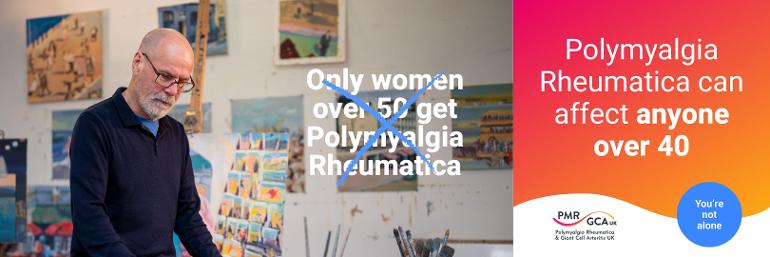The second post in our PMR myth busting campaign is live this week.
We often hear from patients that PMR is an older woman's disease. It's true that more women than men get PMR and that the most common age for diagnosis is in the 70s, but many are younger. We also know from feedback that this can cause delays in diagnosis.
We have posts appearing on Facebook (facebook.com/pmrgcauk) and Twitter (twitter.com/PMRGCAuk), an email to all our members and information on our website.
Please share this information with other patients, friends and relatives, in other PMR forums and with your clinicians.
Visit our website for the facts pmrgca.org.uk/pmr-myth-bust...
Be part of the campaign - together we can help more people.
If you want to share your story of getting diagnosed with PMR at a younger age, please do reply and also indicate whether you would be happy for us to use your story in any further marketing.
Fran
